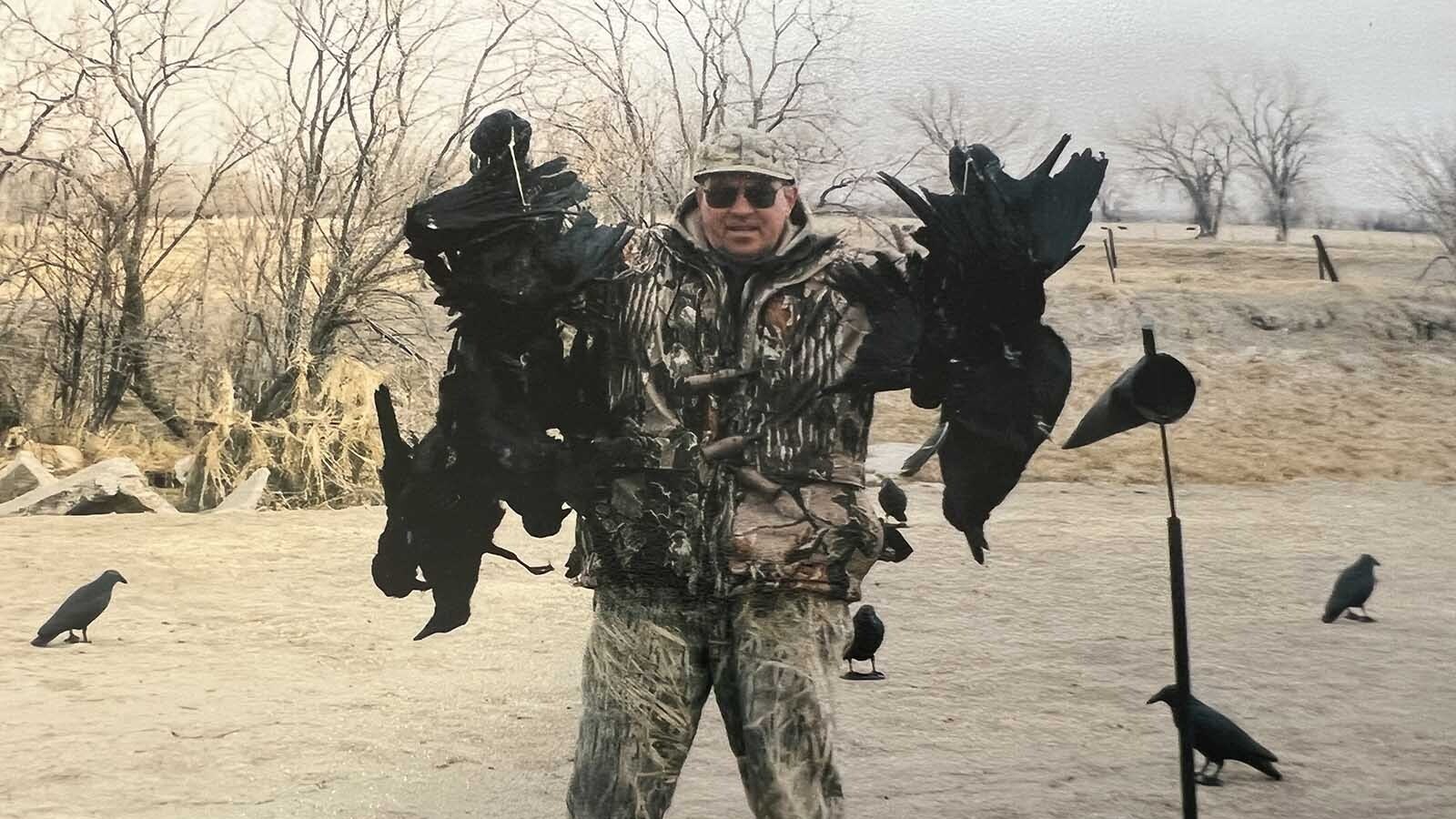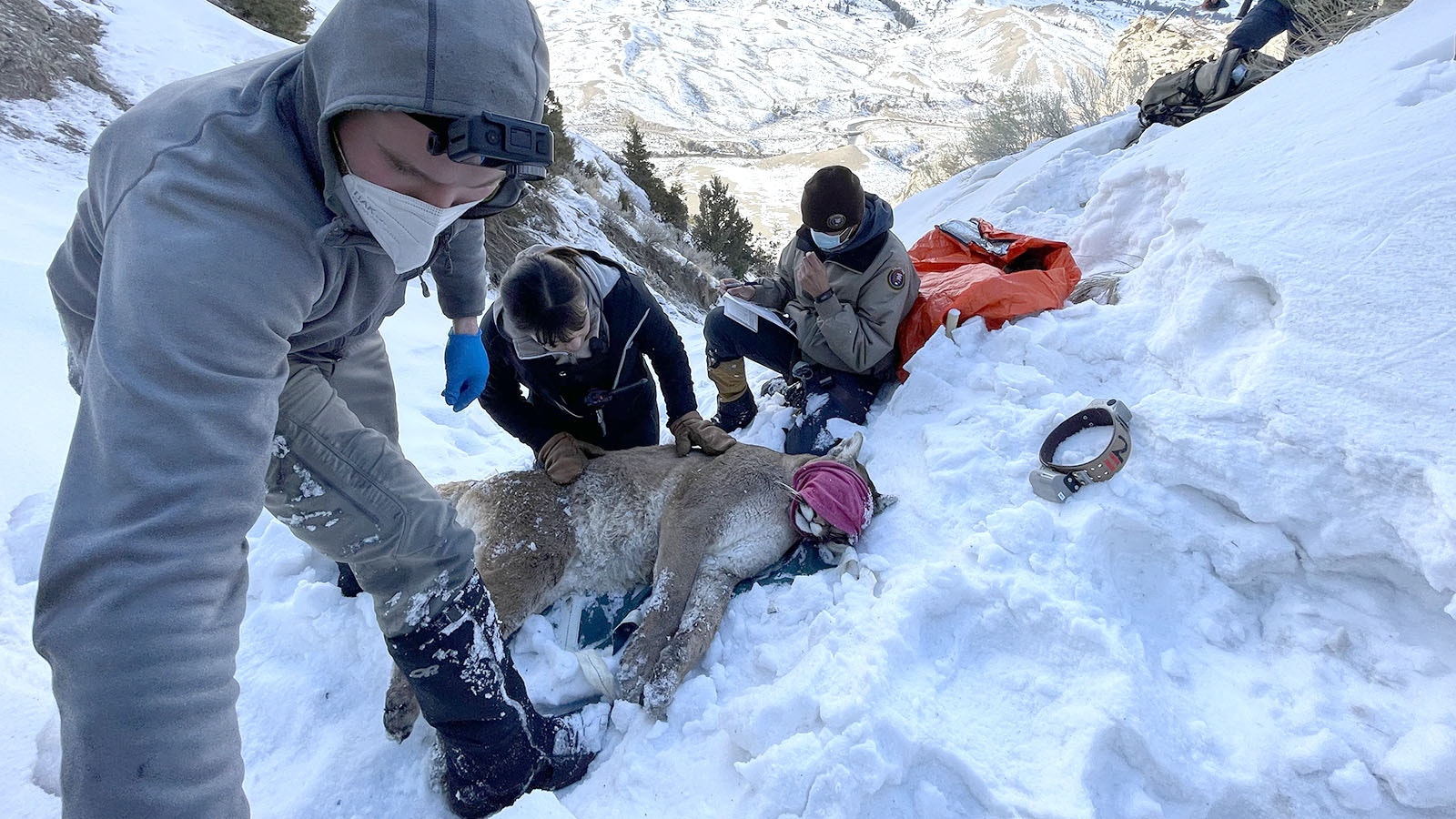Now that wolves are in Colorado, the state needs to pump more money into rural mental health programs because the predators could stress ranchers – even to the point of suicide, says a lawmaker in Wyoming’s neighbor to the south.
Republican Rep. Richard Holtorf, who represents Colorado’s largely rural District 63, said he doesn’t want ranchers “holding a gun to their head” over anguish caused by losing cattle to wolves.
He made his remarks Wednesday during a meeting of the Colorado Legislature’s Joint Senate Agriculture and Natural Resources and House Agriculture, Water & Natural Resources Committee.
Double The Mental Health Funding?
Because wolves have been reintroduced, Colorado should double a proposed one-time $550,000 boost to rural mental health funding, Holtorf said. He posed the question to committee chairwoman, Democrat Rep. Karen McCormick.
“I have a real concern, and you’ve got understand, I’m a third-generation cattle rancher,” Holtorf said. “And our heart and our souls are poured into those cattle. We tag every baby. We know the sire of every calf. We know the mamma cow. They’re like family to us. So when they’re taken, it’s not only economically painful. It is psychologically painful, and it is personal.
“Are you able to double your investment in mental health in that line item when these things start to hit home so I don’t have ranchers in Colorado holding a gun to their head because of what’s coming?”
No action was taken on his suggestion, although it was mentioned in later discussion that an expansion of Colorado’s rural mental health program could become permanent through the state’s behavioral health administration.
During some closing remarks, Holtorf doubled down on his stance that wolves will cause some serious mental issues for ranchers.
“This is going to be a mental and behavioral health issue for my people, people like me. We need to realize what this means to cattlemen in this state,” he said. “Because arguably, the wolf will predate against livestock, and we pour our hearts and souls into our cattle herds — every day.
“And you need to understand that. And there needs to be an investment in protecting my people. And if you don’t believe me, you can go pull the suicide statistics for farmers and ranchers in this nation. And it will open your eyes.”
Reintroductions Will Continue
In December, Colorado Parks and Wildlife (CPW) oversaw the release of 10 wolves, transplanted from Oregon, in Grand and Summit counties.
The next round of reintroductions is slated sometime between December 2024 and March 2025, when 15 more wolves will be released, CPW Jeff Davis told the committee during later discussion.
The Confederated Tribes of the Colville Reservation in Washington state has agreed to provide those 15 wolves, he said.
‘Chronic Depredation’
Democrat legislator Sen. Dylan Roberts, whose district includes Grand and Summit counties, asked Davis about reports that two of the wolves released in Grand County came from packs with a history of attacking cattle in Oregon.
That seemed to contradict previous statements by CPW officials that no wolves with a history of cattle depredation would be reintroduced to Colorado, Roberts said.
Davis said “chronic depredation” would be a more accurate term.
Even wolves that have never even seen cattle have the potential to attack cattle once they’re around them, he said. So CPW was looking for wolves that didn’t have a history of regularly attacking cattle, not necessarily wolves from packs that had never attacked cattle at all.
“It was not necessarily clear to me that we were talking about ‘depredation’ vs. ‘chronic depredation,’” Davis said. “And that’s the piece where we were following a plan and not taking wolves from packs that have a chronic depredation history.”
Mark Heinz can be reached at mark@cowboystatedaily.com.





